Watching Karoline Kent groove confidently to the music, as she plays a DJ set for an energetic crowd at In the Hanging Garden in Hobart, it’s hard to believe the 44-year-old spent the early part of her career working as a public servant.
Kent, who performs as Track & Field, says quitting her job five years ago – after 17 years in the public service – to pursue her passions of art and music, was the best decision she ever made.
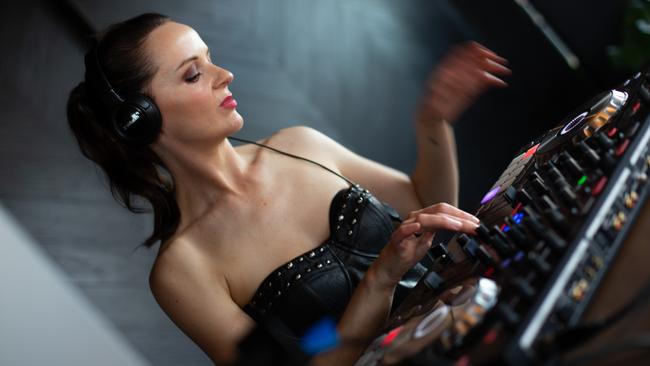
“It was definitely time for a change,’’ she explains.
“I thought ‘you only get one shot, just do what your heart leads you to’. I just took a punt really. I didn’t want to be left thinking ‘what if’. So I decided to quit and hope for the best.”
As well as working as a DJ in the evenings (@djtrackandfield), Kent spends her days working as an artist, with the talented illustrator – who completed studies in design at the International School of Colour and Design in 2018 – showcasing her work online while also taking on various commissions (karolinekent.com).
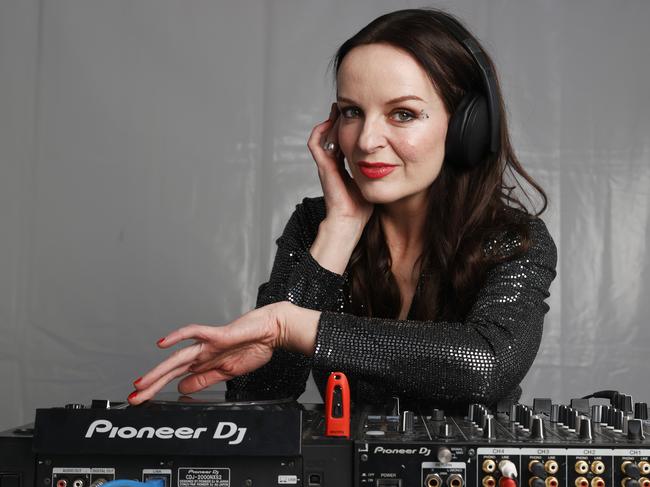
She’s currently working on a cocktail menu for an upmarket local bar and describes her drawing as being “inspired by 1960s fashion muses, Polish poster art (Kent has a strong connection to her Polish heritage), and all things romantic and retro’’. She also makes quirky Tasmanian tigers out of clay which she sells on etsy. And she works casually as an ABC radio producer.
Kent is one of many Tasmanian DJs who lead double lives, working in creative or professional roles by day before taking to the DJ decks when the sun goes down.
“It’s wonderful,’’ she says of her newfound career path.
“I finally feel like I’m alive now. It has been amazing. I tell everyone who has an inkling that they want to quit their job to pursue a passion to do it, I waited too long.’’
Kent grew up playing piano in Tasmania – her mum was a concert pianist – and she remembers how much she enjoyed putting together mix tapes and cutting together songs as a child in the 90s.
“I was sampling before I even knew what it was,’’ she says.
“I’ve always loved music, especially pop. It’s something that has always been in me. Music was definitely a big influence and a first love. And at the same time I was always illustrating as a child, always drawing. They were two parts of my life but I never took them seriously until a few years ago.’’
Kent, who lives in Hobart, would have liked to try DJ-ing in her 20s, but admits she “let fear stop me from trying”.
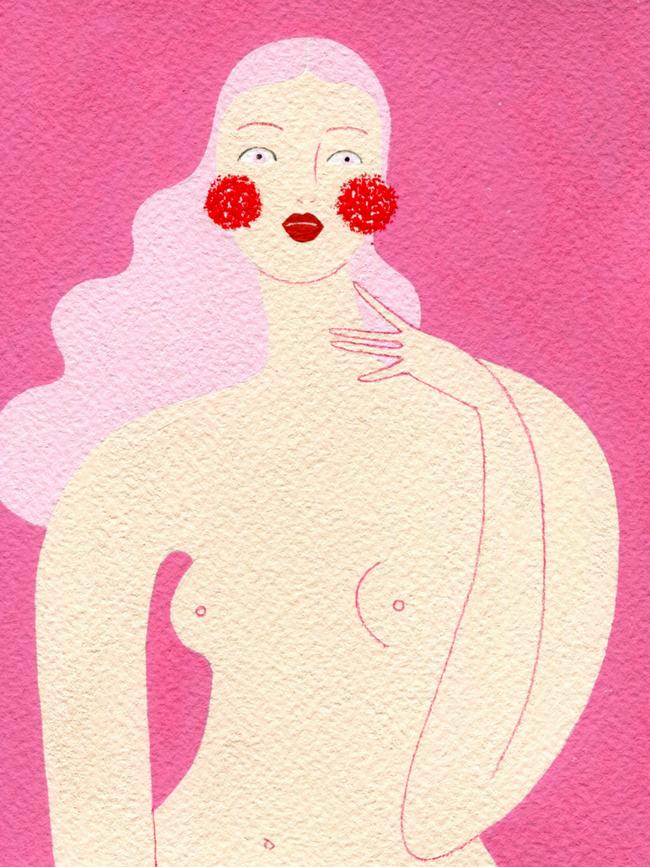
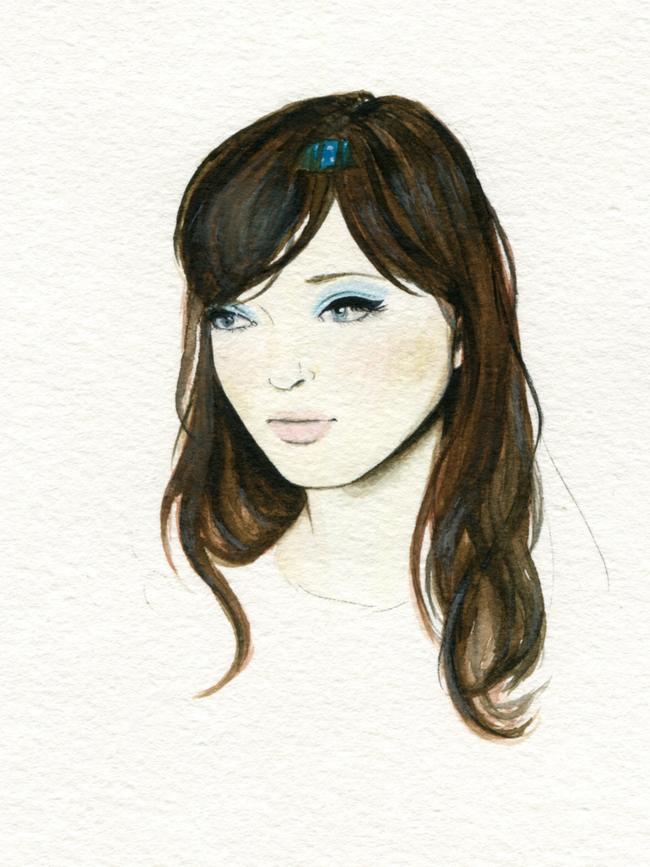
But when she finally took the plunge and quit her job, things fell into place quickly.
She did some gigs for free to gain experience and opportunities started presenting themselves for paid work.
“I pinch myself,’’ Kent admits.
“Five years ago I thought there was no way I’d actually be performing.’’
The DJ scene is steadily growing globally and Kent says Tasmania is no exception, with a talented pool of DJs vying for gigs locally.
“It’s incredible, it’s really thriving,’’ she says.
Kent plays regular gigs at Rude Boy, The Den, Altar and In the Hanging Garden and has also played on New Year’s Eve at Tasmania’s Taste of Summer.
Kent, who believes her musicality – as a pianist and also as a Latin dancer and Zumba teacher – helps with her DJ-ing.
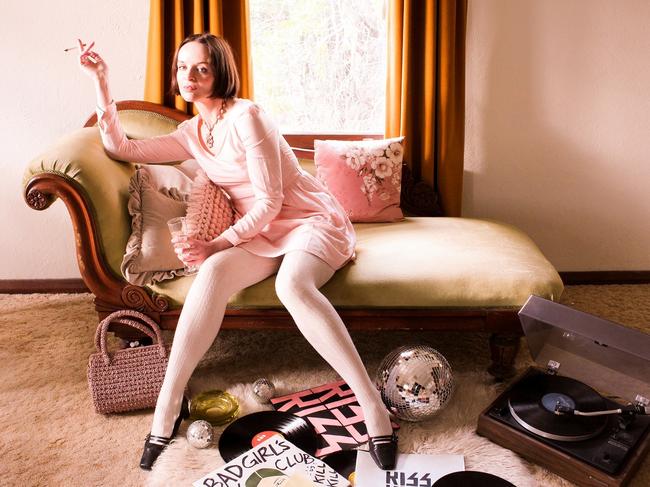
She says one of the things she loves about working as a DJ is “being in control of the dancefloor and being able to play all my favourite music”. But more than that, she enjoys the buzz of the crowd and the connection and interaction she has with people in the crowd while she’s performing.
Her music changes between venues, but she typically plays house music or “anything with a nice dance beat to it” because “ultimately I want people dancing”.
Pop classics are a favourite, especially hits from the 80s and 90s, and she loves the challenge of mixing music live, which ensures no two performances are ever the same.
“That’s the fun thing about each gig,’’ Kent says.
“You start to build on the energy of the audience. You come in with an idea but you’re led by the audience, that’s the exciting part, every gig is different.’’
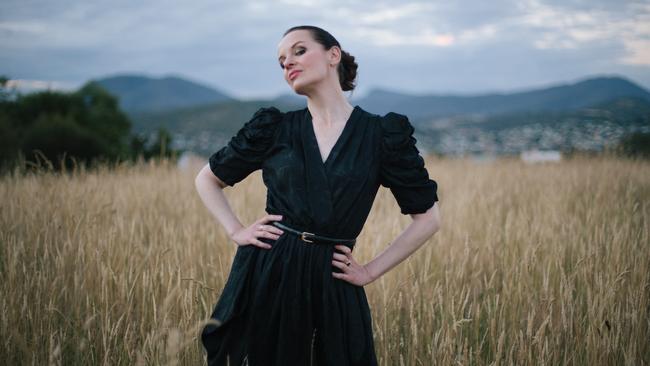
She’s certainly glad she took a gamble and changed careers.
“It never feels like work, that’s for sure,’’ Kent says of being a DJ.
“It’s tough work and the hours can be long and you’re on your feet. Sometimes it can be a bit much at the end of a rowdy night. But I wouldn’t change it for the world. I always come away feeling satisfied and elated and there’s nothing better than connecting with people through music.’’
HAYATO SIMPSON
Hayato Simpson has spent the past 10 years playing as a casual and contract violinist for the Tasmanian Symphony Orchestra. But when he’s not wowing audiences with his instrumental prowess on stage at Hobart’s Federation Concert Hall, the 37-year-old can be found DJ-ing at clubs and festivals – both in Tasmania and interstate – with performances at events including Winter Feast and Mona Foma and regular gigs at Hobart venues including Twisted Lime.

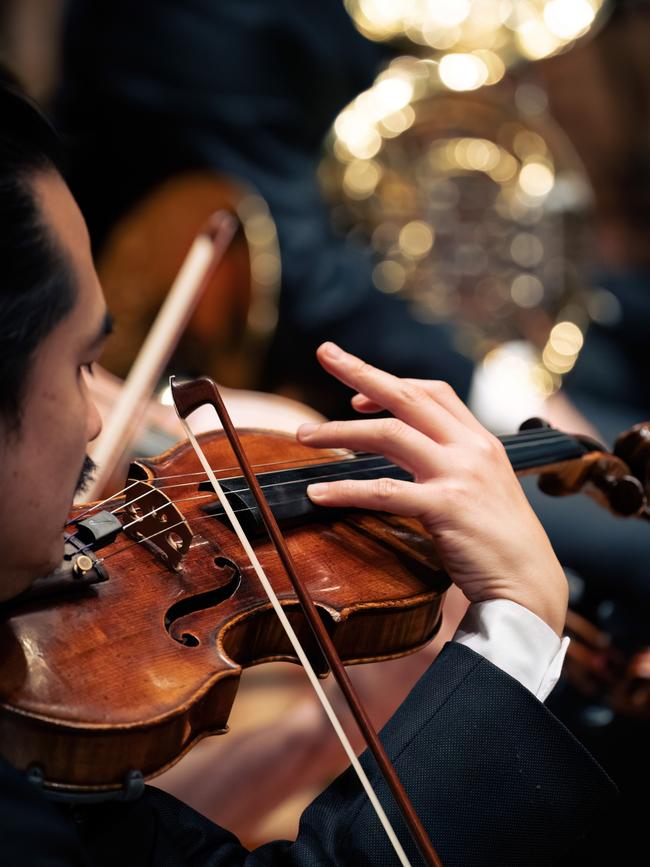
“As a full-time freelance musician, having a constant variety of projects keeps me on my toes,’’ Simpson explains.
“I play as Staggersaur (@staggersaur), and generally play bass music with a focus on funky breaks. DJ-ing style is pretty haphazard – for clubs it’s fairly standard but for festivals I love playing narrative sets, and also using a hybrid setup including live synths/modular.’’
Simpson, who grew up in Brisbane but now lives in North Hobart, started learning piano when he was four, and violin at age five.
And while DJ-ing came later – “I’ve been a dabbler for a while but started performing at festivals two years ago,” he says – he has found a way to bring both interests together as he often incorporates his own music into his sets, while also adding a sense of fun through his wild outfits and quirky humour.
His shows have been known to feature “moments of true beauty” as well as “some absolute nonsense” and “everything in between”.
“I never really considered myself a DJ,’’ Simpson admits.
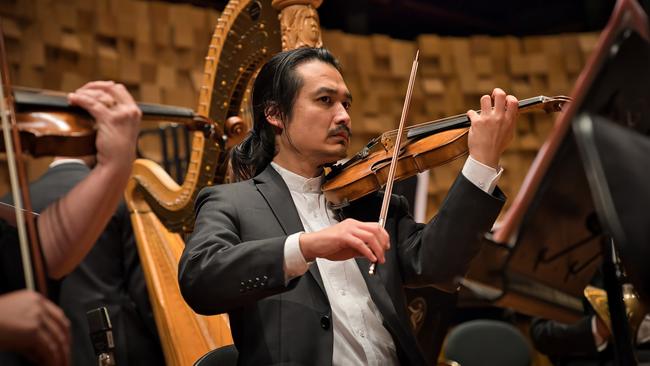
“I’ve been heavily into sound design and audio production for a long time, DJ-ing just seemed like a useful avenue to play some of my own material out. I do like to include my own music and remixes into my sets. I don’t often incorporate purely classical music, since these projects are usually an escape from that side of my brain. But the training definitely helps with live instrument performance on stage.’’
AMY WALSH
Amy Walsh was set on becoming a pharmacist. But she also harboured a desire to DJ. So, in the third year of her four-year Bachelor of Pharmacy with Applied Honours degree at the University of Tasmania, she decided to give DJ-ing a try.
“It was always something I wanted to do,’’ she says of being a DJ.
“But I didn’t want to do it as a career.’’
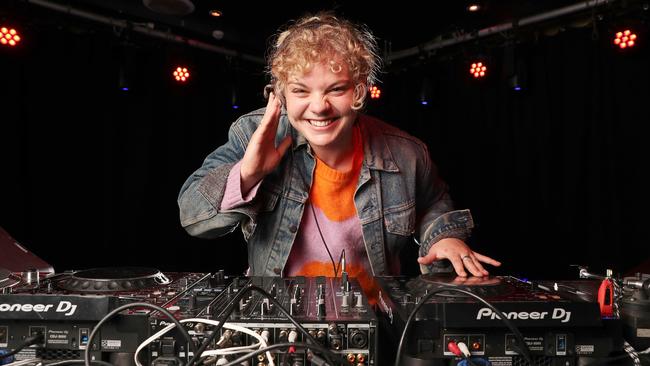
The now 25-year-old took part in the Leg Up program, which was run by DJs, teaching DJ skills with the intention of including more gender diversity and racial diversity within Hobart’s DJ community.
The group met weekly for several weeks, and Walsh says the experience was invaluable.
“It was really great, and it gave me my first gig, which was for an album launch,’’ she says.
The course enabled Walsh to make vital connections within the industry and she was soon playing at In The Hanging Garden, The Grand Poobah and Taste of Summer.
“I really love the technicality behind it,’’ Walsh says of DJ-ing.
“I’m a classically trained musician – I’ve played the flute since I was eight.’’
“As a young adult playing something like the flute, it just wasn’t really hitting what I wanted from music anymore. I was still listening to a lot of music but I was really missing that engagement. But training as a DJ and being able to manipulate sounds and discover new music, it was really fun for me, it’s a really fun pastime.
“I’ve met so many different people as well. I love talking to people and getting to know people from all different walks of life.’’
Her hobby quickly turned into a side-hustle and despite finishing her studies and now working as a resident hospital pharmacist, Walsh continues to work as a DJ on weekends.
“I got way more gigs than I was anticipating,’’ she explains of starting out.
“I was actually quite shocked, particularly over the summer time, how much work would come through. I really feel like the Hobart scene was very supportive in giving space to new DJs.
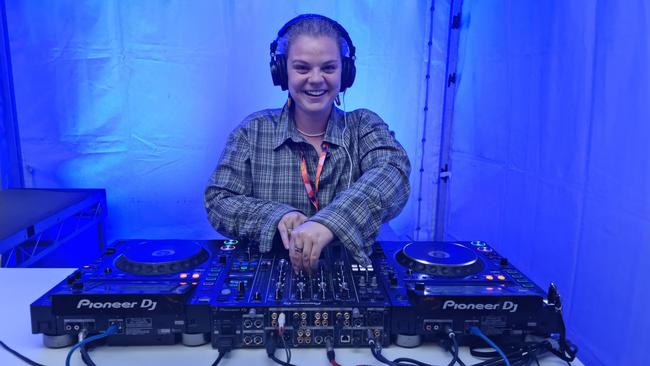
“I think everyone has lots of parts to their personality and I really strive for work to be something that I enjoy while I’m there. But ultimately I want work/life balance and this was a really good way to ensure I had work/life balance where I could even make money from my hobby. It keeps life fresh and engaging.’’
Walsh is currently working at a hospital in Melbourne but plans to return to Hobart for DJ gigs.
She says with modern technology it’s relatively cheap and easy for budding DJs to experiment at home with a laptop and some basic DJ hardware.
“What’s cool is that you can learn the fundamentals in quite a budget-friendly way and the bigger opportunities you get, the more equipment you get to use (at different venues),’’ she says.
Walsh, who performs as DJ Phemme (@djphemme), only plays music by women and non-binary artists.
“It’s a feminist focus of mine,’’ she explains.
“I realised I was listening to a lot of music that was only by men. So I put a focus on listening to more music by women, and when DJ-ing came along there were a few female electronic artists I was really enjoying, so I set myself a challenge to bring more women’s music to the masses.’’
She says a lot of work goes into preparing for gigs, with a “lot of discovery time” flicking through different pieces of music and pulling out certain bits that will work well with a particular crowd. Something that is too high energy, for example, may not be the best choice for a lazy Sunday afternoon session.
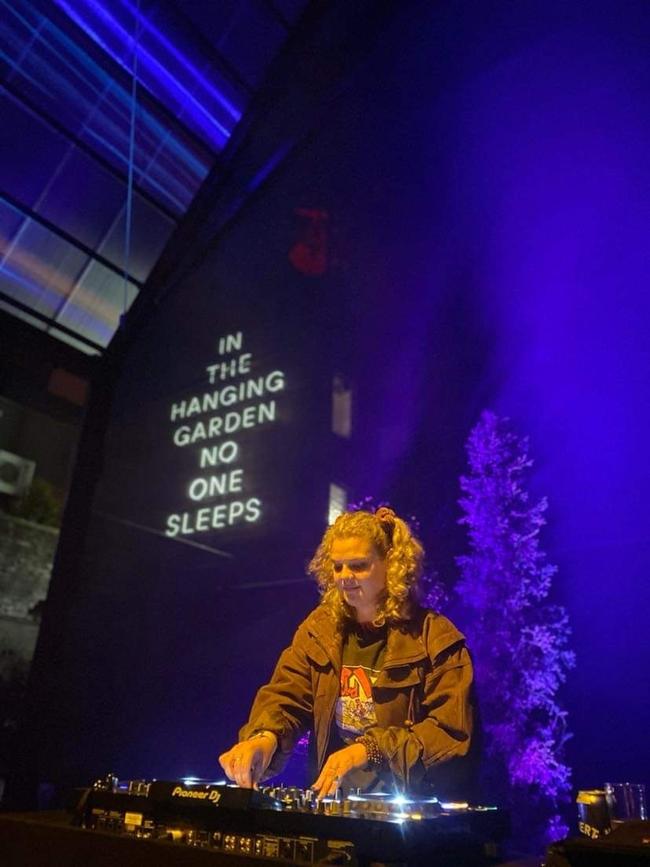
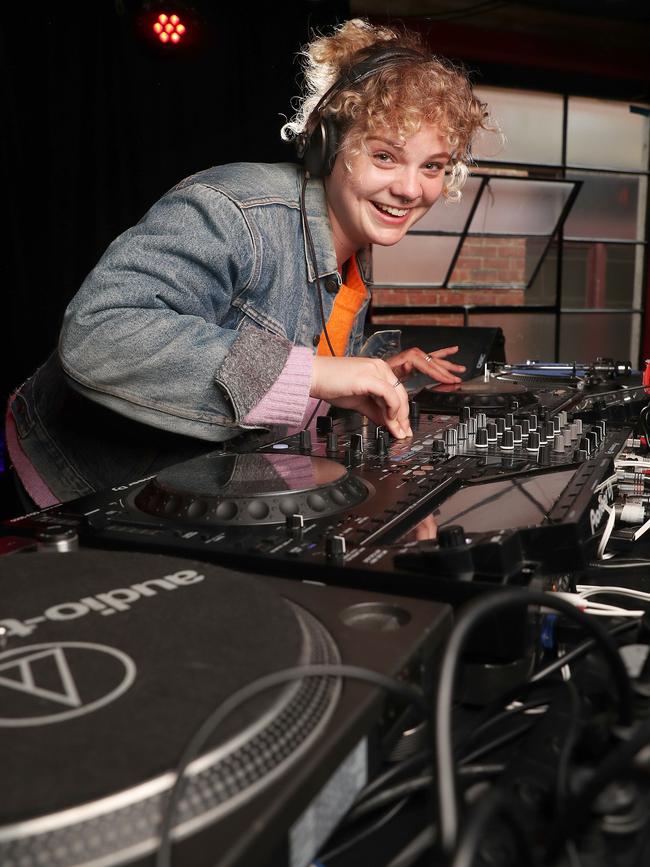
There’s a lot of organisation required, but also plenty of spontaneity in mixing tracks and feeding off the crowd.
“I’m definitely a very organised DJ,’’ Walsh laughs.
“All the tracks have a lot of tags on them (like a digital sticky note) – they’ll say things like ‘this is where it starts to get good’ or ‘this is where it should finish by’ or ‘this is where it gets quite loud’. There’s quite a lot of prep work. And then on the day, there’s a lot of reading the crowd to work out what people are enjoying and the vibe you want to foster and I like to leave that to chance as you don’t know exactly what you’re going to get.’’
MAX BEST
Max Best has earnt a name for himself as one of the world’s best DJs. The 33-year-old from West Hobart has been crowned Australia’s best DJ for the past two years, which led him to compete against top international DJs at the DMC World Championships in San Francisco last year and also in Paris last weekend.
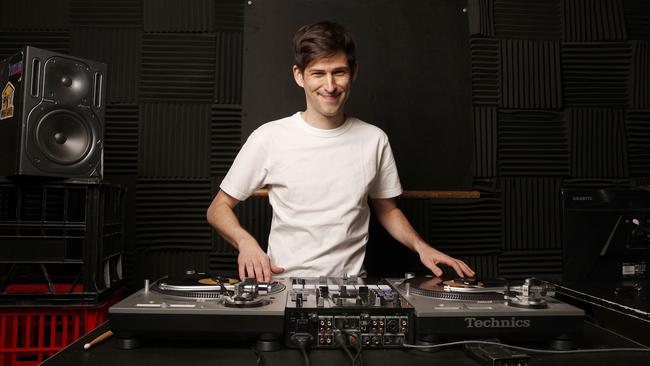
And while Best didn’t win the global title, he did manage to finish 5th overall in Paris. He made it through the elimination final first – which featured contestants from 20 countries – then into the grand final, where he competed against eight other DJs, performing a six-minute routine in front of a panel of judges.
It’s a remarkable effort for someone who only started DJ-ing after realising as a 19-year-old that he loved controlling the music at house parties.
People soon started asking him to play music from his parties at their parties, and he ended up working as a full-time DJ (@djmaxbest), starting his career at Halo, a nightclub that used to be in Elizabeth Mall.
About seven years ago, a club Best played at – Mobius – hosted the Tasmanian DMC finals.
“It was the first time it had been held down here (in Tasmania) in 20 years and I happened to win it the first year and I just kept winning the Tassie ones and placing higher and higher each year in the national finals,’’ recalls Best.
Eventually he became the national champion – the first Tasmanian to do so – which afforded him the chance to compete on the global stage.
“It has been quite a surprise the past few years, having so much success,’’ he says.
Although he admits a lot of hard work goes into competing. Best spent six months meticulously crafting his set for the Paris finals, while also working full-time in the music industry – he runs a booking agency when he’s not performing as a DJ.
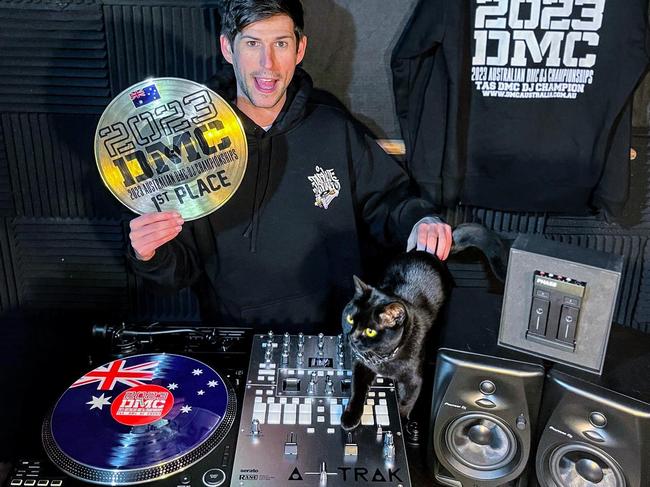
Best admits he used to get very nervous when competing, but he now has a secret weapon on standby to help him overcome sweaty palms.
“One year I was so nervous and my hands were so sweaty that I couldn’t actually grip the records and it was a disaster,’’ Best explains.
“Every year since then I bring climber’s chalk to put on my hands … so I can grip the records properly. But I don’t get that nervous any more, I feel like I’m a lot more confident about competing.’’
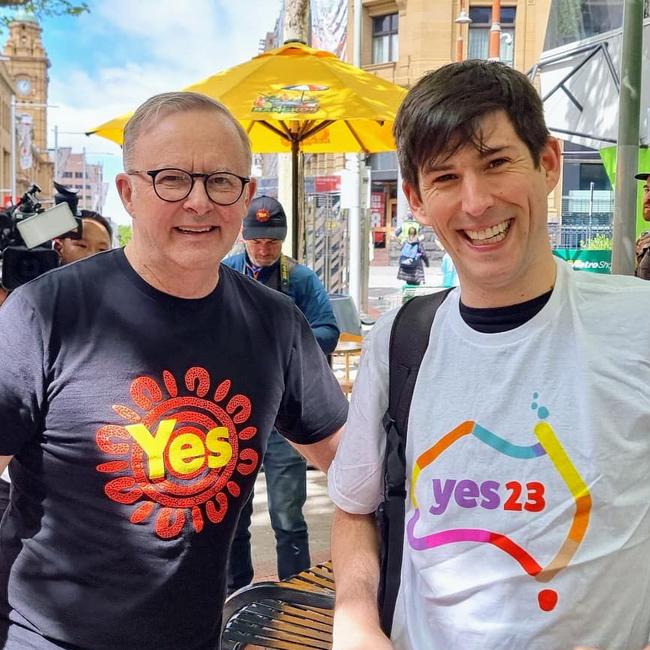
Best came fourth in San Francisco in 2023 – and also won the people’s choice award by a landslide – which he says made him feel “artistically vindicated”.
He also attracted the attention of DJ Albo – aka Prime Minister Anthony Albanese – who
he met in Hobart in 2022, and who later penned Best a congratulatory letter, saying it was a “remarkable achievement” to represent Australia internationally and wished him good luck with his endeavours.
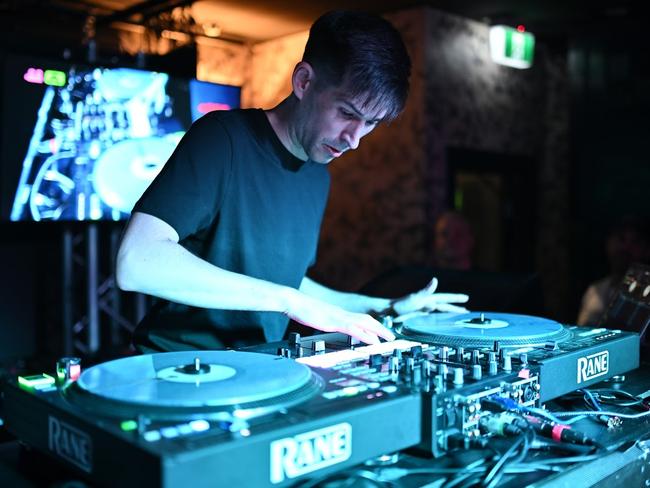
Performing at the top level requires a high level of technicality and focus. It’s also quite a physical pursuit as Best’s frantic yet expert hands move furiously between the turntables and the various buttons and dials on the deck in front of him.
“It’s very much like a sport, the battle DJ-ing,’’ says Best, who loves playing music with plenty of bass.
“You’re practising techniques and learning the language of scratch and beat juggling.’’

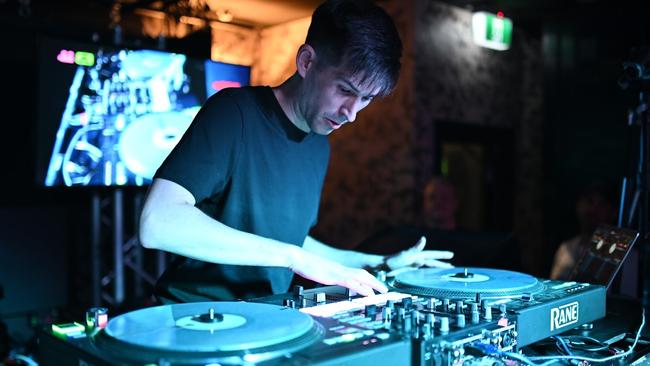
Add your comment to this story
To join the conversation, please log in. Don't have an account? Register
Join the conversation, you are commenting as Logout
Tourists fall after straying from track to photo spot, police say
Police have said two tourists fell into the ocean after walking off-track to a popular photo spot. Hear from the crew who rescued the man swept out to sea.
Swans sail into Hobart in nation-first
In an Australian-first, a cruise ship filled to the brim with AFL fans has docked in Hobart, with the ship emblazoned in the chosen team’s colours. Watch the docking.